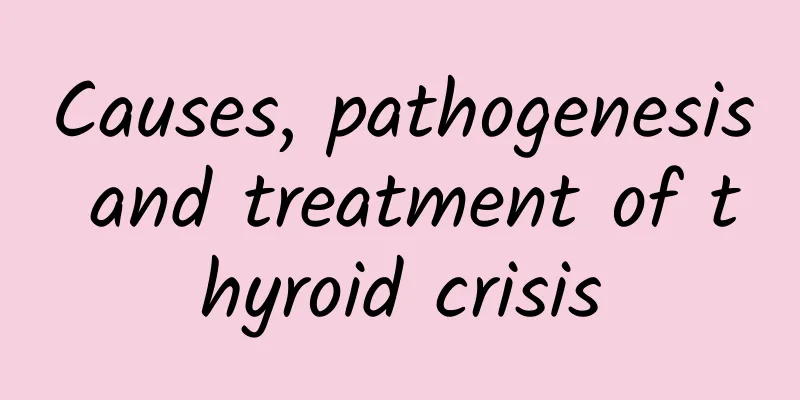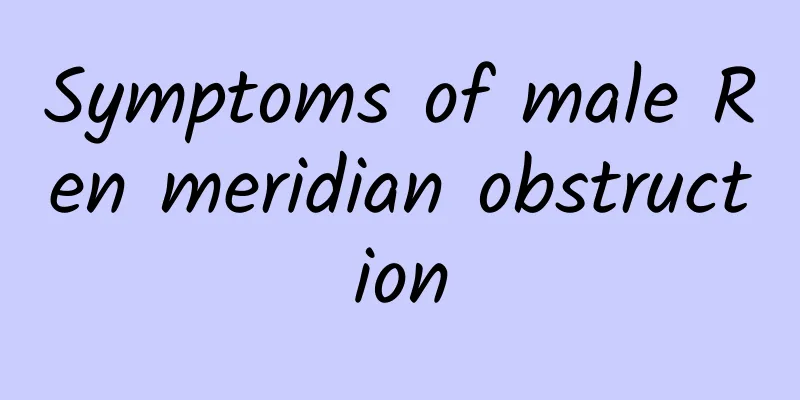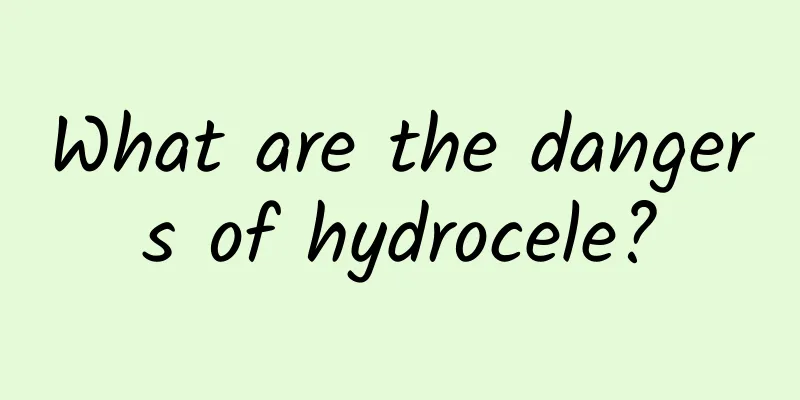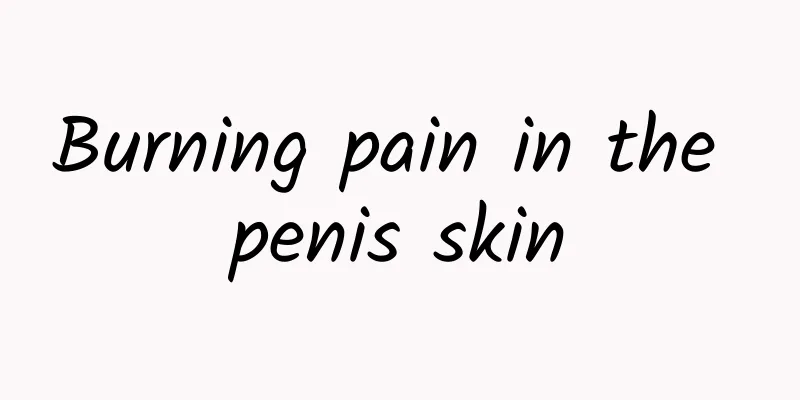Causes, pathogenesis and treatment of thyroid crisis

|
Thyroid storm is a rare but extremely serious complication of hyperthyroidism. Although the morbidity is not high, the mortality rate is very high if it is not diagnosed and treated in time. So what causes it? (I) Causes and pathogenesis 1. Causes ① Infection: It is a common cause, mainly upper respiratory tract infection, followed by gastrointestinal and urinary tract infection. ② Surgery: During thyroidectomy and other types of surgery, stress, compression of thyroid tissue, bleeding, hypoxia, poor anesthesia, inadequate preoperative preparation, etc. can induce crisis. ③ Improper discontinuation of antithyroid drugs. ④ Hyperthyroid crisis can be induced after radioactive iodine treatment. ⑤ Stress: Extreme mental tension, mental trauma, drug reactions, childbirth, and pregnancy toxemia can all cause hyperthyroid crisis. 2. Pathogenesis It is currently believed that the occurrence of crisis is caused by the combined action of multiple factors: ① Increased catecholamine receptors; ② Stress: Stress states such as acute illness, infection, and surgical operation cause increased catecholamine release; ③ High levels of serum free T3 and T4; ④ Insufficient secretion of adrenal cortex hormones: In hyperthyroidism, the synthesis, secretion, and decomposition and metabolism rates of adrenal cortex hormones are accelerated, which causes their function to decline over time and weakens the stress response. (II) Assessment of the condition 1. Data collection (1) Clinical manifestations: The patient's existing hyperthyroidism symptoms worsen, including high fever (above 39 degrees), tachycardia (140-240 bpm), accompanied by atrial fibrillation or atrial flutter, irritability, rapid breathing, profuse sweating, anorexia, nausea, vomiting, diarrhea, etc. Severe cases may experience weakness, shock, drowsiness, delirium, and coma. Some patients have heart failure, pulmonary edema, and occasionally jaundice. (2) Auxiliary examinations: Thyroid function tests are not helpful for diagnosis because the thyroid hormone level in the patient's blood does not increase significantly during a crisis, while the serum protein-bound iodine value (PBI) is often high. For patients suspected of having a thyroid crisis, PBI, T3 and T4 measurements and thyroid 2-hour iodine uptake rate can be performed as a reference in units with conditions, but it is best to start treatment immediately once the clinical diagnosis is established to avoid losing time. 2. Diagnosis of the condition The diagnosis of thyroid crisis currently relies mainly on clinical manifestations. There are no special laboratory test indicators that can be used as a basis for diagnosis. Based on its main clinical manifestations, the diagnostic basis for the pre-crisis and crisis period is proposed, see Table 13-10. Active treatment measures should be taken when pre-crisis symptoms are found. If the observation is not careful and the treatment is not timely, it may develop into hyperthyroid crisis. A small number of patients show apathy, drowsiness, weakness, decreased reflexes, low body temperature, slow heart rate, low pulse pressure, and finally fall into a coma and die. This is apathetic thyroid crisis, which is difficult to identify clinically and is very easy to misdiagnose. You must be highly vigilant. Hyperthyroidism patients who meet three of the above conditions can be diagnosed as being in the pre-crisis or crisis stage. (III) Treatment and Nursing 1. Closely observe the patient's condition and monitor changes in electrocardiogram, consciousness, body temperature, blood pressure, SpO2, etc., and handle any abnormalities promptly. 2. Emergency treatment (1) Reduce the concentration of thyroid hormone in the blood: ① Inhibit the synthesis of thyroid hormone. The first choice is propylthiouracil (PTU) 600 mg orally or through a gastric tube. Then give 250 mg orally every 6 hours. After the symptoms are relieved, reduce to the general treatment dose. ② Inhibit the release of thyroid hormone. Take 5 drops of compound iodine oral solution 1 hour after taking PTU, once every 8 hours, or add 1.0g of sodium iodide to 10% glucose saline solution and drip it for 24 hours. Then gradually reduce the dosage depending on the condition. Generally, it is used for 3-7 days. If you are allergic to iodine, you can use lithium carbonate 0.5-1.5g/d, taken orally in 3 times, for several days. ③ Clear plasma hormones and use peritoneal dialysis, hemodialysis or plasma exchange to quickly reduce plasma thyroid hormone concentrations. This is used for patients who are ineffective with the above conventional treatments. (2) Reduce the response of peripheral tissues to thyroid hormones: ① Propranolol 20-40 mg, taken orally once every 6-8 hours, or 1 mg diluted and slowly injected intravenously. Its function is to inhibit the conversion of T4 to T3 in peripheral tissues. However, patients with heart failure, heart conduction block, atrial flutter, and bronchial asthma should use it with caution or prohibit it. ② Reserpine and guanethidine can consume catecholamines in tissues and reduce the manifestation of hyperthyroidism in peripheral tissues. ③ Hydrocortisone 50-100 mg added to 5%-10% glucose solution and dripped once every 6-8 hours. It can improve the body's responsiveness and enhance stress resistance. It can also inhibit the conversion of T4 to T3 in tissues, have a synergistic effect with antithyroid drugs, and can quickly alleviate clinical symptoms. 3. Strengthen nursing care ① Absolutely rest in bed, keep the environment quiet, reduce adverse stimulation in the environment, such as sound and light stimulation, limit visitors, reduce conversations, and explain the condition to the patient in a gentle tone. Sedatives can be given to irritable patients. ② Physical cooling for those with high fever, avoid using acetylsalicylic acid drugs, because they can bind to thyroid binding globulin (TBG), replace T4 and T3, and increase free thyroid hormone in the blood. ③ Correct dehydration and electrolyte disorder, replenish water in time, and drink no less than 2000ml of water per day. Supplement glucose, potassium, sodium and vitamins, etc. Give a high-calorie, high-protein, high-fiber diet. ④ Make all kinds of emergency preparations to prevent complications such as aspiration pneumonia. ⑤ Care and comfort patients with a high degree of sympathy, eliminate fear, and build confidence in overcoming the disease. 4. Remove the cause. Quickly find and remove the cause, especially infection. Blood culture should be performed in time. If infection is considered, antibiotic treatment can be given based on experience. Later, antibiotics can be selected based on bacterial culture and drug sensitivity reports. People with other diseases should also be actively treated at the same time. |
<<: Men's underwear sizes. Will underwear expire after being worn for a long time?
>>: What are pouch underwear? What are the functions of pouch underwear?
Recommend
What should men do if they have low sperm count? What can they eat to replenish sperm?
Low sperm count is the biggest cause of infertili...
You can tell whether a man is sub-healthy by looking at his hands!
If you look carefully, you will find that everyon...
Each of these is a small exercise, but few people know that persistence can cure kidney deficiency.
It is not strange for men to have kidney deficien...
What medicine can cure premature ejaculation?
Many men will experience premature ejaculation, a...
Is semen abnormal if it is like jelly? See several signs of semen abnormality
Some men find their semen is like jelly after hav...
What is morning erection?
When I wake up in the morning, I see that my peni...
The penis can't shoot out
Masturbation refers to the act of satisfying one&...
Is it good for men to ejaculate outside the body for a long time?
For some couples, if they want to avoid pregnancy...
Can teenagers get prostatitis?
The causes of prostatitis are very complicated. I...
What causes pain below the navel in men?
In everyone's eyes, men are all thick-skinned...
Itching on the inner thigh of a boy
Many male friends often experience itching on the...
Why is the glans not hard during erection?
The penis is a very important sexual organ for me...
The man's scrotum is a little wet
Nowadays, the private parts of many male friends ...
Middle-aged men's new perspective on sex
For men, ED (erectile dysfunction) and premature ...
Second ejaculation sperm survival rate
If male friends have a low sperm survival rate, i...









